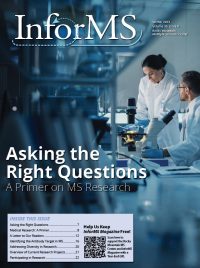The Rocky Mountain MS Center at University of Colorado is the home of one of the largest MS research programs in the world. The success of our research studies and clinical initiatives depends on the broad support of the MS community in the Rocky Mountain MS Center region.
Below are summaries of current priority research studies and clinical efforts that the Rocky Mountain MS Center is supporting.
RISE-MS and DREAMS: Risk Factors in Early MS
The RISE/DREAMS research project is designed to create an MS risk profile to identify genes, biomarkers, or environmental circumstances that are associated with earliest manifestations of MS. The development of this risk profile would enable us to diagnose and treat MS as early as possible.
The RISE/DREAMS MS study is examining asymptomatic, first-degree relatives of MS patients between 10 and 30 years of age. Using the data and biomarker analyses, we aim to identify risk factors to diagnose and treat MS as early as possible.
The research team hopes to expand RISE MS to multiple sites in the United States and abroad to conduct a large longitudinal study.
Biorepository
Biomarkers are biological markers that can be used in diagnosis, selecting treatments, and evaluating treatment responses. Having pre-collected samples is invaluable for this research. Having these samples available has helped support the research of multiple neuroimmunology investigators and led to collaborations with other investigators.
Projects include collecting paired cerebrospinal fluid and blood samples from patients undergoing lumbar punctures. Researchers aim to expand sample collection to longitudinal plasma and blood collections from patients starting DMTs to learn more about the effects of these medications in MS over time.
Clinical Integration of Multidomain Digital Biomarkers to Detect Progression in MS
The purpose of this project is to compare and integrate multidomain digital and blood biomarkers to better evaluate progression in patients with MS. Traditional clinical measures lack sensitivity in measuring progression. By integrating digital and fluid biomarkers we aim to improve the accuracy and efficiency of evaluating therapeutics for patients with multiple sclerosis.
Early detection of progression in MS remains a challenge. Detection is dependent on neurological evaluations that lag patient experience. Metrics used to detect progression in clinical trials track a limited number of domains including ambulatory, cognitive, and upper extremity function. These evaluations are a snapshot of day-to-day function and are insensitive for detecting changes relevant to patients.
Fluid biomarkers provide additional information on progression that can help predict the disease course and provide an understanding of how digital biomarkers represent the underlying disease. Measurements of blood proteins such as neurofilament light (NfL) and glial fibrillary acidic protein (GFAP) are increasingly used in clinical trials and can be tracked over time.
Ultimately, by better identifying metrics for progression, this study may help improve future efforts for evaluation of novel therapeutics for progressive MS and aid in characterizing progression in studies adapting the use of currently approved therapeutics (such as extended interval dosing of anti-CD20 disease-modifying therapies).
Patient Reported Outcomes (PRO) Program
It is critical for a physician to understand MS patients’ experiences and changes in symptoms over time. This understanding enables us to provide high-quality and cost-effective care that is responsive to the individual needs and concerns of patients. This information is also critical for understanding broader trends across the patient population that could inform care and research.
Our Patient Reported Outcomes (PRO) Program creates a systematic process for collecting information from patients on their quality of life using questionnaires that cover factors such as depression, anxiety, cognition, and mobility. The PRO program has already been successfully piloted and implemented in the RMMSC at University of Colorado. Researchers aim to expand the program to include the integration of MS pediatric patients and pediatric and adult patients with other related neuro-immunological diseases. This includes the expansion of the database as well and the development of a new provider dashboard to allow providers to view the patient responses during clinic with the patient.
Stiff Person Syndrome Research Study
This is a study to understand the incidence and prevalence of rare disease Stiff Person Syndrome (SPS). Accurate and applicable epidemiological data has been difficult to obtain in SPS. Frequent misdiagnosis, bias secondary to measurement method (e.g. survey), and evolution of diagnostic criteria all add a measure of difficulty to obtaining reliable epidemiological data. Large population-based epidemiological studies in SPS are lacking.
Understanding the true disease burden and onset of SPS is fundamental to ensuring optimal patient care, for allocating appropriate system resources for this rare disease, and to improve upon current standards. Developing a methodology that can be replicated in other systems would allow for greater patient capture of a treatable disease with devastating consequences when unrecognized.







